The decline of the Roman Empire, a process spanning several centuries, marked a significant transformation in the ancient world. Once a beacon of power and civilization, Rome faced numerous internal and external challenges leading to its eventual downfall. Factors such as economic instability, military struggles, and political corruption played pivotal roles.
Amidst these tumultuous changes, the rise of Christianity emerged as a transformative force within the empire. Initially a persecuted minority, Christianity steadily gained followers, profoundly influencing Roman society. This new faith introduced ideologies that diverged from traditional Roman values, shifting the focus from state loyalty to spiritual salvation.
As the empire grappled with these shifts, Christianity’s impact became increasingly apparent, setting the stage for a complex interplay between religion and imperial decline.
The Rise of Christianity
The emergence of Christianity in ancient Rome unfolded within a vibrant tapestry of religious diversity and political dynamics. Initially, Rome embraced a polytheistic tradition, incorporating various religions into its cultural milieu. However, the execution of Jesus Christ by Roman authorities in Jerusalem marked a pivotal moment, igniting the spread of Christian beliefs across the Empire.

Key figures such as the Apostle Paul significantly contributed to this spread, establishing early Christian communities in Rome. Despite facing persecution under emperors like Nero and Decius, the resilience of these communities only strengthened their unity and resolve.
The eventual conversion of Emperor Constantine marked a turning point. His issuance of the Edict of Milan in 313 AD granted Christians religious freedom, allowing them to integrate into civic life. This political shift, combined with the appeal of Christianity’s message of hope and salvation, facilitated its widespread acceptance.
Additionally, the extensive network of Roman roads and communication systems aided the movement of missionaries, further promoting the growth of Christianity. As the faith intertwined with Roman identity, it set the stage for profound societal changes that would later influence Rome’s decline.
Shift in Roman Values
In ancient Roman society, values were deeply entrenched in polytheism and civic duty. Romans worshipped multiple deities and engaged in state-sanctioned rituals, which underscored a loyalty to the emperor and the state. Practices like gladiator battles and social stratification reflected a societal norm that prioritized traditional customs over individual moral considerations.
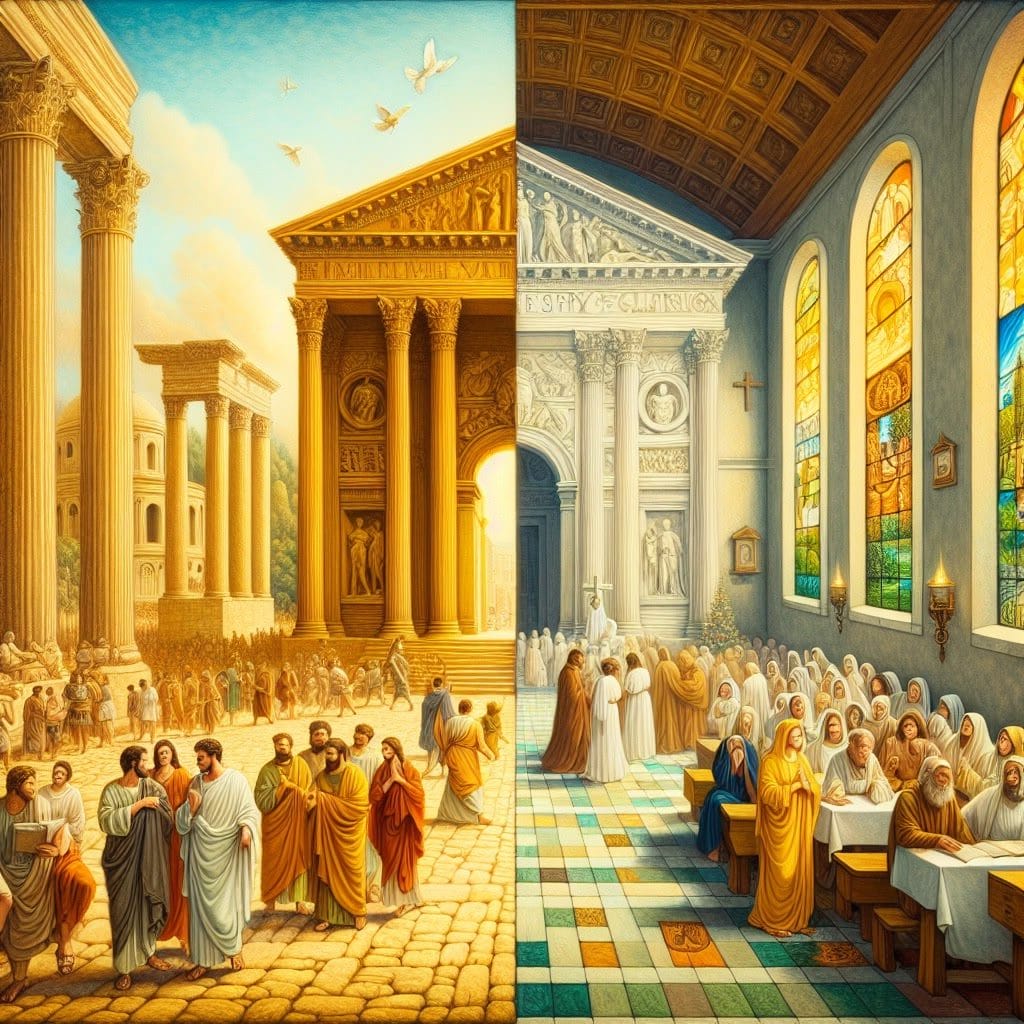
Christianity, however, introduced a radically different set of values that challenged these norms. Emphasizing monotheism and a personal relationship with God, Christianity rejected the worship of multiple gods as idolatry. This shift introduced ethical imperatives that opposed prevalent Roman practices like violence and moral permissiveness.
The rise of Christianity also impacted Roman citizens’ loyalty to the emperor and participation in military service. Many early Christians, adhering to teachings of nonviolence, viewed military service as incompatible with their faith. This aversion to military involvement weakened the traditional Roman emphasis on civic duty and military loyalty.
As Christian values gradually permeated Roman society, they reoriented priorities towards spiritual salvation and ethical living. This transformation contributed to a redefinition of what it meant to be Roman, ultimately playing a role in the Empire’s decline as the once-unified societal structure began to fracture.
Impact on Military and Governance
The rise of Christianity introduced profound changes to Roman military practices. Early Christian teachings, rooted in nonviolence and ethical living, discouraged participation in military service, which was traditionally seen as a civic duty. Many Christian leaders criticized military involvement due to its inherent violence, creating a tension between faith and state obligations. This stance led to accusations of shirking civic duties, as Christians prioritized spiritual values over martial prowess.
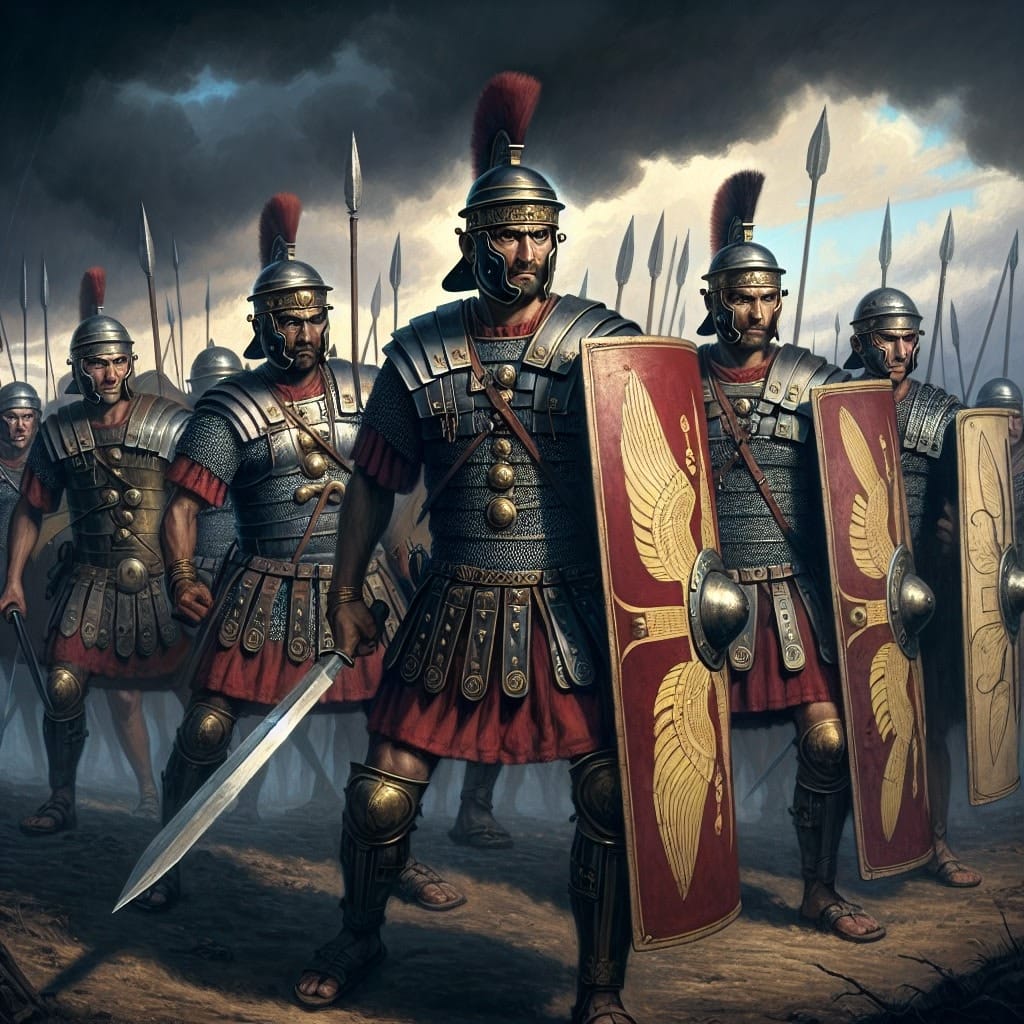
Additionally, the religious diversity within the Roman army posed significant challenges for Christians, who were required to partake in polytheistic practices conflicting with their monotheistic beliefs. Despite this, some Christians joined the military, driven by social and financial incentives, highlighting the complex interplay between faith and duty.
Christianity also challenged the emperor’s authority by shifting the focus from imperial loyalty to a divine allegiance. As Christianity became the official religion, it redefined the emperor’s role, emphasizing humility and charity over traditional imperial power. This transformation undermined the emperor’s divine status, contributing to a weakened central authority and altering the foundations of Roman governance.
Religious Conflicts and Social Cohesion
The emergence of Christianity within the Roman Empire brought with it a series of internal conflicts that significantly impacted social cohesion. Notable among these were the theological disputes such as Arianism versus Orthodoxy. Arianism, which questioned the divinity of Christ, clashed with the Orthodox view, leading to intense debates and divisions within early Christian communities. These conflicts extended beyond religious circles, influencing broader Roman society and contributing to social fragmentation.
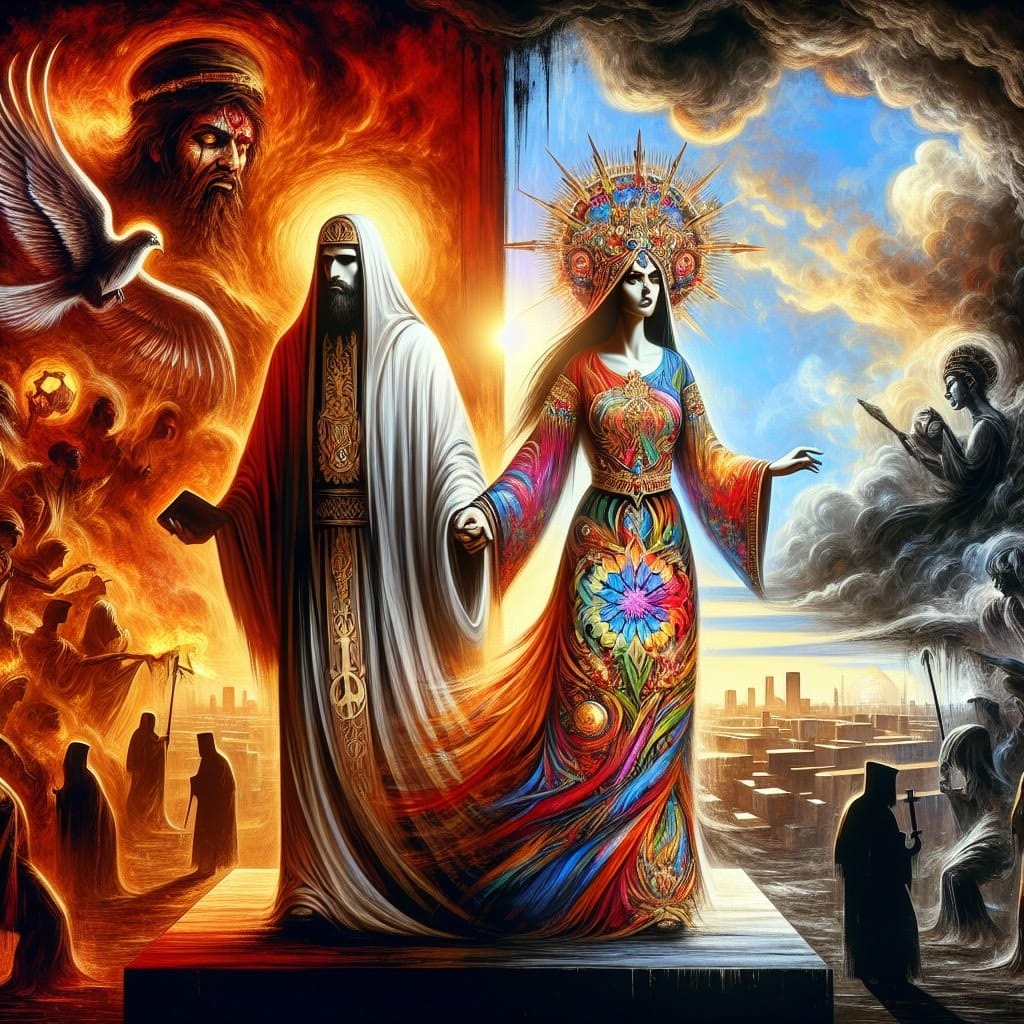
n an empire that prized religious unity as a cornerstone of its identity, the rise of these divisions posed a substantial challenge. The refusal of Christians to engage in traditional Roman religious practices further exacerbated tensions, creating a rift between those adhering to Christianity and those maintaining polytheistic traditions. As Christians withdrew from communal rituals, this fostered suspicion and were often viewed as outsiders, undermining the unity that Rome had long relied upon for stability.
Ultimately, these internal religious conflicts contributed to a weakening of social cohesion within the empire, as differing sects and beliefs created factions that disrupted the once unified Roman social fabric and paved the way for further divisions.
Undermining Imperial Authority
The rise of Christianity in the Roman Empire marked a profound shift in how emperors were perceived, particularly in their divine status. Traditionally, emperors were considered divine figures, revered and worshipped in temples dedicated to them. This perception was fundamentally challenged by the emergent Christian faith, which promoted a monotheistic belief system centered around Jesus Christ, effectively undermining the emperor’s role as a divine entity.
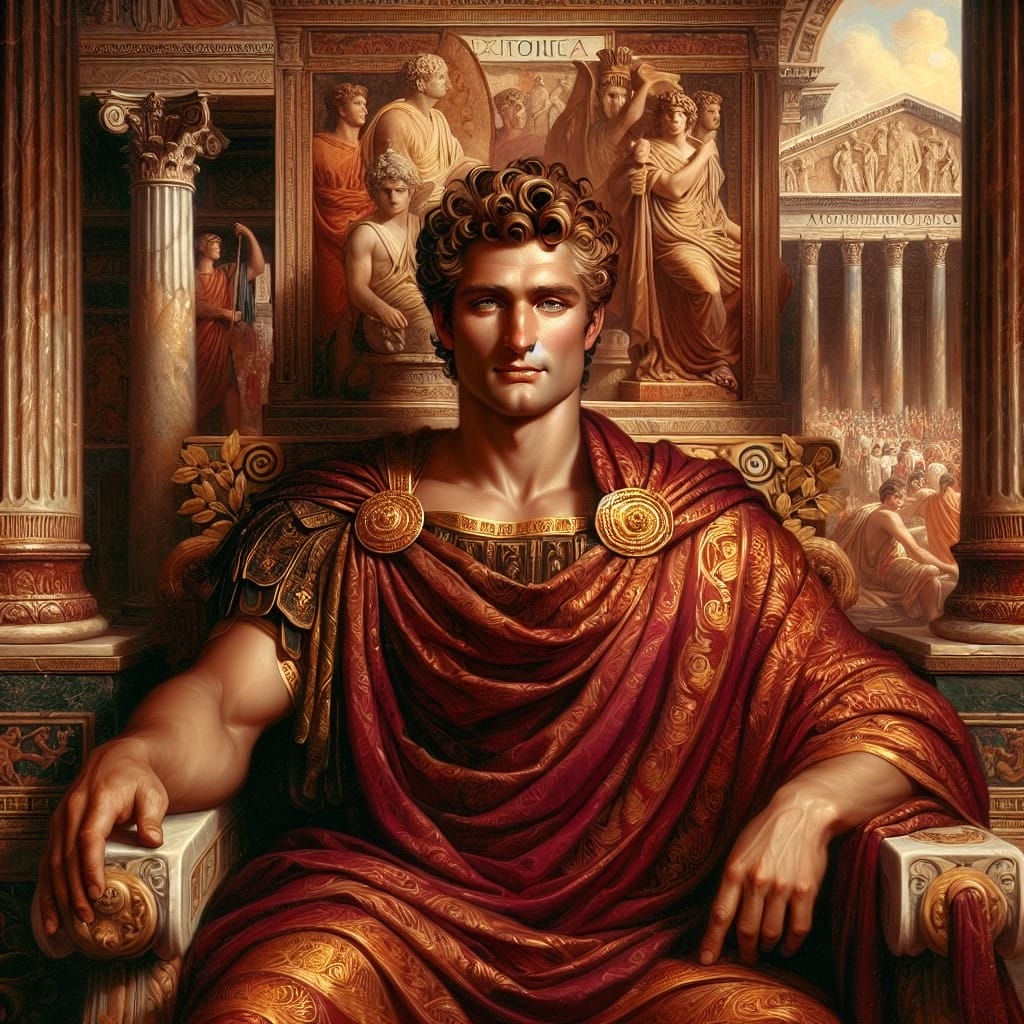
The implications of this shift were significant. As Christianity became more widespread, the once-sacrosanct rituals venerating emperors lost their potency, diminishing the emperor’s absolute authority. By emphasizing humility and charity over grandeur and power, Christianity altered the dynamics of imperial rituals, placing greater importance on spiritual values.
Politically, this shift facilitated a redefinition of power dynamics between the church and the state. With Christian leaders like bishops gaining influence, the traditional power of emperors was increasingly contested. This growing religious authority challenged the established political order, heralding a new era where ecclesiastical figures played a decisive role in governance, thus eroding the emperor’s grip on power and reshaping the Roman political landscape.
Transformation of Roman Society
The rise of Christianity brought profound cultural shifts within Roman society, challenging longstanding norms and traditions. As Christianity transitioned from a minority cult to the official religion of the empire by 380, it introduced new social norms that emphasized humility, charity, and social justice over the traditional Roman values of status and power. The establishment of monasteries and the ascetic movement offered alternative lifestyles, breaking away from the patriarchal structure of Roman family units and providing women new roles outside of marriage and childbearing.
Economically, these cultural changes had significant impacts. Christian leaders began to advocate for the poor and marginalized, prompting a shift in resources towards social welfare projects such as hospitals and orphanages. This change in focus from elite status to community welfare marked a considerable departure from previous Roman policies. Moreover, the church’s influence extended into legal reforms, addressing issues like domestic violence and the treatment of women, thereby reshaping societal norms and expectations.
Overall, the Christianization of Roman society not only altered its cultural landscape but also redefined its economic and social frameworks, setting the stage for a new societal order that contrasted sharply with earlier Roman traditions.
Consequences for the Roman Empire
The long-term impacts of Christianity’s rise on the Roman Empire were profound, reshaping its religious and social landscape. By becoming the official religion by 380, Christianity fundamentally altered the fabric of Roman society, leading to a shift away from traditional pagan practices towards a Christian-centered worldview. This transformation introduced new social norms, with a heightened focus on charity and social justice, contrasting sharply with the previous Roman emphasis on power and status.

Previously, Roman society was characterized by a rigid hierarchy and a strong focus on political loyalty, particularly towards the emperor, who was often regarded as a divine figure. Christianity challenged this perception by emphasizing humility and spiritual salvation over earthly authority, gradually eroding the emperor’s divine status.
Furthermore, the emergence of Christian institutions like monasteries provided new social roles, especially for women, challenging the patriarchal norms of Roman family structures. This shift not only redefined individual roles within society but also reoriented the empire’s moral compass, ultimately contributing to the decline of traditional Roman values and the transformation of the empire’s identity.
Data and Statistics on Rome’s Decline
Analyzing the decline of the Roman Empire requires examining both qualitative shifts and quantitative data. However, attempts to find statistical evidence for this decline often reveal a scarcity of concrete figures. Despite this, historical context provides insight into how Christianity influenced Rome’s transformation.
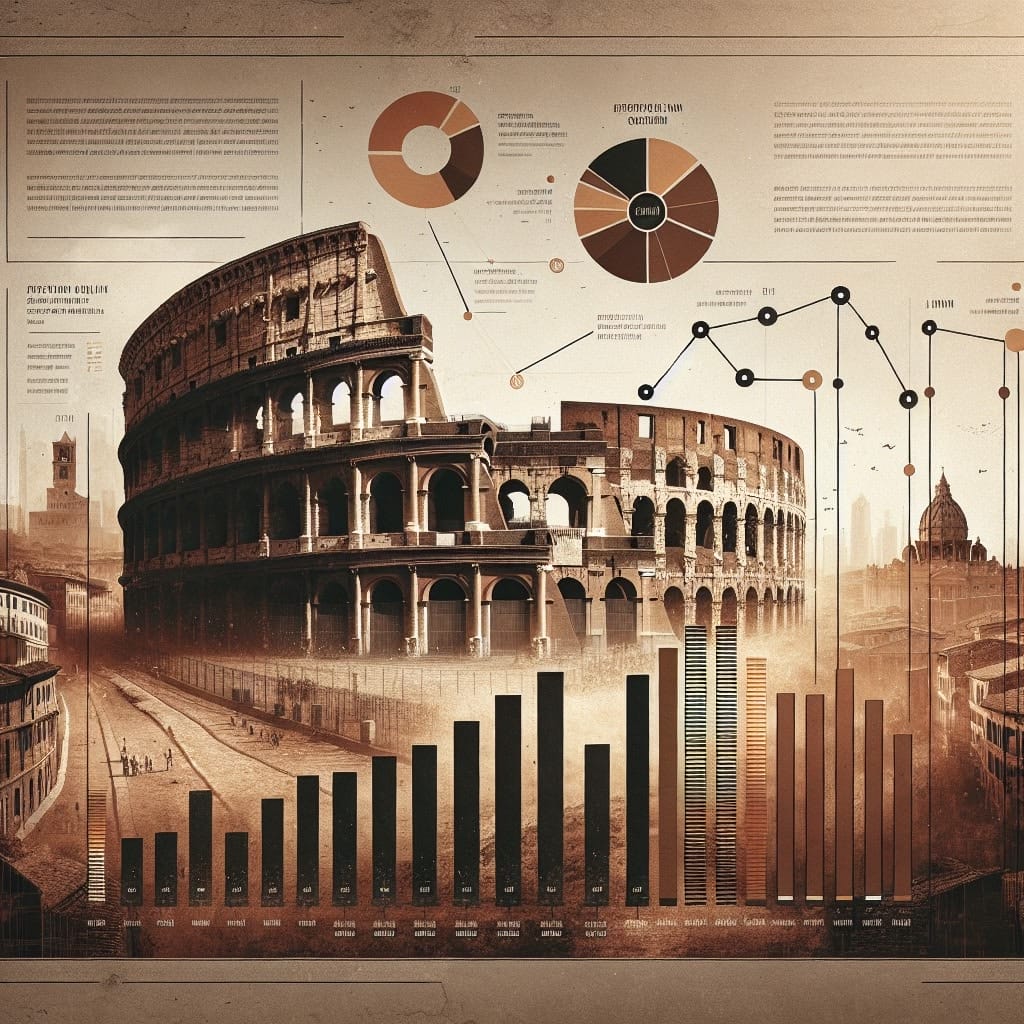
By 380, Christianity had evolved from a minor sect to become the official religion of the empire, resulting in profound changes to the Roman socio-political landscape. While direct statistical data linking Christianity to Rome’s decline is elusive, historical records suggest a correlation between the rise of Christianity and the erosion of traditional Roman values. The following table summarizes key transformations during this period:
| Year | Event | Impact |
|---|---|---|
| 312 | Constantine adopts Christianity | Increased religious influence |
| 380 | Theodosius I makes Christianity the state religion | Shift in political and social norms |
| 6th Century | Expansion of Christian institutions | Change in social structures |
While Christianity’s role in the decline remains a complex topic, it undeniably contributed to the transformation of Roman values and governance, setting the stage for the empire’s eventual downfall.
Historical Context and Analysis
The decline of the Roman Empire is a multifaceted historical phenomenon. Scholars identify a mix of political, economic, and military factors as pivotal. The transition of power following the Five Good Emperors marked the start of Rome’s destabilization. Commodus’ reign, characterized by centralized and ineffective leadership, set a precedent for the subsequent political turmoil.
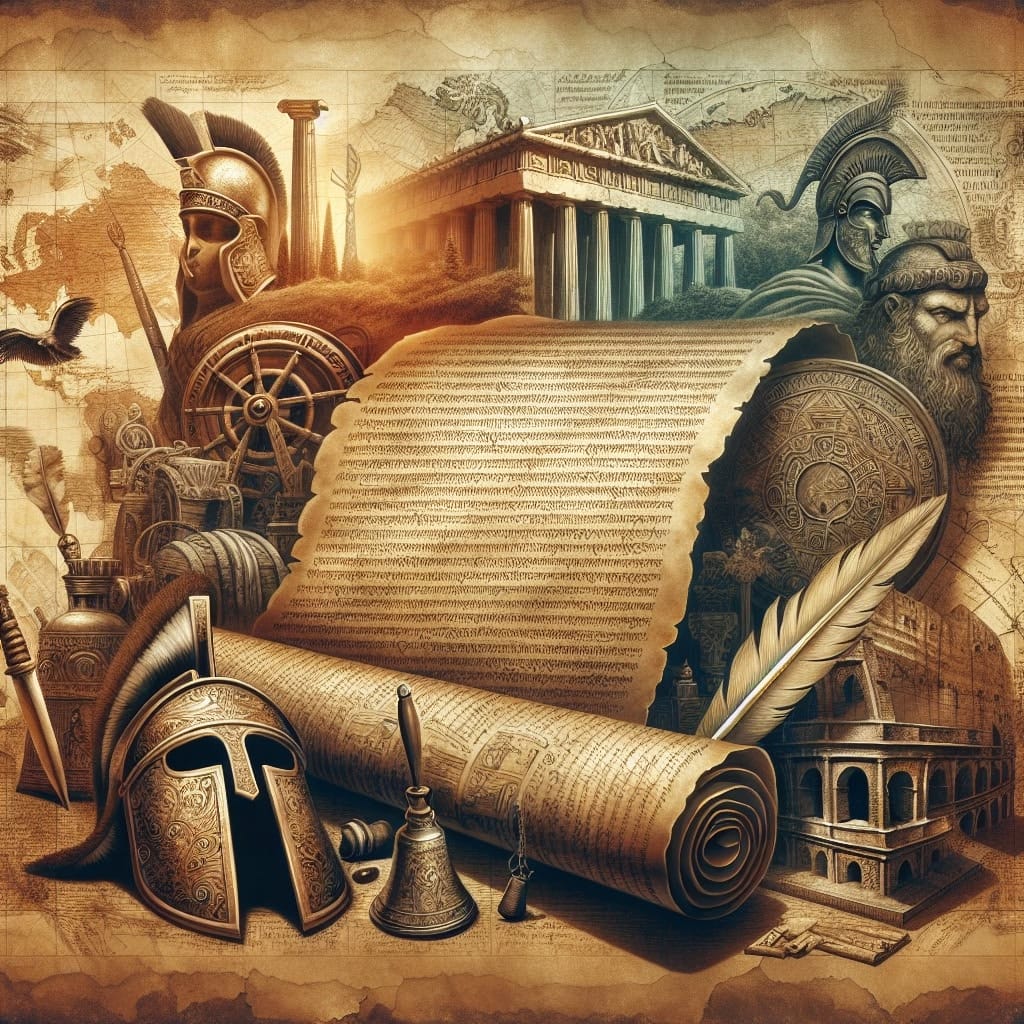
During this era, the rise of Christianity introduced profound changes to the Roman societal fabric. Historians such as Peter Sarris argue that Christianity fostered intolerance, yet also a newfound concern for the vulnerable. This duality led to a socially cohesive yet exclusive society. Furthermore, Kate Cooper emphasizes that while Christian values reshaped Roman households and challenged patriarchal norms, the shift was gradual rather than immediate.
Collectively, these narratives suggest that Christianity’s influence on Rome was complex. It was not the sole cause of decline but an element that intertwined with existing socio-political challenges. The interplay of these dynamics underscores the intricate tapestry of Rome’s eventual fragmentation.

